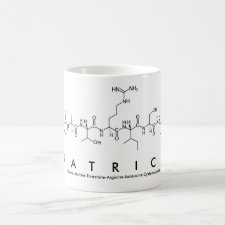
Authors: Peeters M, Troost FJ, Van Grinsven B, Horemans F, Alenus J, Murib MS, Keszthelyi D, Ethirajan A, Thoelen R, Cleij TJ, Wagner P
Article Title: MIP-based biomimetic sensor for the electronic detection of serotonin in human blood plasma.
Publication date: 2012
Journal: Sensors and Actuators B: Chemical
Volume: 171-172
Page numbers: 602-610.
DOI: 10.1016/j.snb.2012.05.040
Alternative URL: http://www.sciencedirect.com/science/article/pii/S0925400512005023
Abstract: Serotonin is an important signaling molecule in the human body. The detection of serotonin is commonly performed by high performance liquid chromatography (HPLC), which is costly and time consuming due to extensive sample preparation. We will show that these problems can be overcome by using molecularly imprinted polymers (MIPs) as synthetic receptors in combination with impedance spectroscopy as readout technique. The MIPs were prepared with several blends of the underlying monomers and the best performing MIP material was selected by optical batch-rebinding experiments. MIP microparticles were then integrated in an impedimetric sensor cell and dose-response curves were measured in PBS buffer and in non-diluted blood plasma. The sensor provides reliable data in the physiologically relevant concentration regime as an independent validation by HPLC measurements demonstrates. Finally, we show that the impedimetric response upon serotonin binding can be attributed to a capacitive effect at the interface between the MIP particles and the plasma
Template and target information: serotonin
Author keywords: biomimetic sensors, Serotonin, Molecularly imprinted polymers, impedance spectroscopy, Equivalent circuit modeling



Join the Society for Molecular Imprinting

New items RSS feed
Sign-up for e-mail updates:
Choose between receiving an occasional newsletter or more frequent e-mail alerts.
Click here to go to the sign-up page.
Is your name elemental or peptidic? Enter your name and find out by clicking either of the buttons below!
Other products you may like:
 MIPdatabase
MIPdatabase









